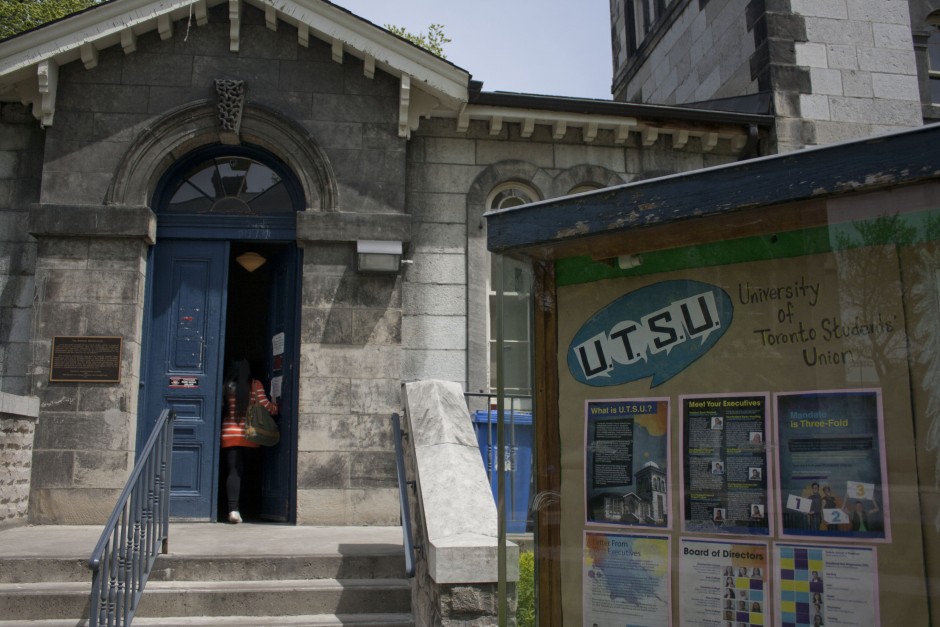Content warning: This article includes mentions of sexual harassment.
The University of Toronto Students’ Union (UTSU) held its third Board of Directors meeting of the 2021-2022 academic year on June 27.
Executives and directors discussed the letter from the Muslim Students’ Association (MSA) on conflicts between Israel and Palestine. During the meeting, Innis College Director Elad Dekel suggested the union rescind their signing of the letter, which directors later voted to do in an emergency meeting on July 4.
Members of the Executive Committee also provided an update on their work in June. The board approved the UTSU’s preliminary budget and a report on the First Year Council (FYC) honoraria. The board also discussed plans for returning to campus in the fall.
Debate on Israel and Palestine letter
The first part of the meeting revolved around a motion that had already been passed in an Executive Committee meeting to sign a letter from the MSA demanding that President Meric Gertler acknowledge the ongoing violence in Israel and Palestine and its impact on students.
The Executive Committee originally voted to sign the letter at a meeting on June 20. At the board meeting, Dekel motioned to externalize the June 20 decision, so that the Board of Directors could vote on the motion a second time and potentially reverse the signing by voting against it. The board eventually rejected the proposal to immediately rescind the signature and voted to hold an emergency meeting on the topic later on. At the emergency meeting, the UTSU passed a motion to rescind the signature.
Executive reports
In her report, UTSU President Alexa Ballis explained that she is working on a second open letter regarding allegations of sexual harassment made within the Faculty of Music, which will be directed to U of T administration. The letter will focus on university-wide policies and will ask the administration to improve resources for sexual violence on campus. Ballis also said that the UTSU’s approach to this issue will focus on its role as a student union and how it can help improve the climate on campus.
Ballis also mentioned the UTSU’s plan for classes in the fall semester. The union will push for a hybrid model of learning, as many faculties think that this model is the best alternative for international students and those feeling uncomfortable going back to campus immediately. Ballis said that the union will publish statements or create a report to encourage U of T to use a hybrid model.
Catherine Lai, vice-president public & university affairs, added that the UTSU aims to create a standardized framework of guidelines for course instructors, which will include mandating lecture recordings and paid note-taking. Lai also stated that the union will advocate for more leniency on accommodations and communication with instructors. Lai hopes that the proposal for hybrid learning will be applied to all faculties “regardless of the fall learning plans that are specific to each.”
Preliminary budget
At the meeting, the board voted to approve the UTSU’s preliminary budget, which was presented by Vice-President Operations Fiona Reuter.
Reuter explained that the union’s budget for their Student Aid program nearly doubled from around $80,000 last year to around $160,000 for the upcoming year. She added that this increase in the budget is being implemented in the hopes that it will allow the UTSU to better support students at a time of financial need.
The Finance Committee set a budget of $120,000 for UTSU events, which include orientation and all student life events for this year. This amount was lowered from the UTSU’s initial estimate of $140,000 because, as explained by Vice-President Student Life Maria Lin, the union does not anticipate having to spend as large an amount as it did last year, when orientation took place online. This year’s orientation will be taking place mostly online, with some in-person events.
The UTSU will allocate $25,000 to hosting their website and to website development, in order to improve their website’s appearance and accessibility, and to add more features. The website will also be used to promote the fact that the Students Commons will soon open.
Reuter introduced a motion to the board to approve the FYC’s honoraria, which will total to $1,000 for both the president and vice-president of the council. Therefore, the FYC’s president and vice-president will each receive an honorarium of $500 for the work they do this year. Although the board approved the final report of the FYC executives from the previous year — the report that suggested the honoraria in the first place — there was no motion at the meeting to approve the honoraria because there was no standard procedure that dictated how to do so. The board voted that the Governance Committee discuss a formal approval procedure at their next meeting.
Discussion about the fall term
Many directors of U of T’s professional faculties shared an update on their divisions’ plans for returning to campus at the board meeting. Most faculties are hoping for a return to in-person classes, but are still in the process of making final decisions.
The director of the Faculty of Kinesiology and Physical Education stated that courses for the faculty’s first-year and second-year students will be entirely online, while third-year and fourth-year students will have a system of hybrid course delivery. The Faculty of Medicine and Faculty of Nursing both plan to have a system of hybrid course delivery for classes and activities that require a large group, and in-person sessions for classes that involve working in a small group.
Some directors at the meeting brought up possible concerns about the return to campus in the fall, including that international students have to deal with travelling back to campus.


